Gum Health 101

Drumroll, please — September is — National Gum Care Month! We know gum care isn’t exactly the most riveting topic on the planet, but neglecting your gums can quickly lead to a whole host of dramatic health problems. Here at Dr. Lance Johnson Family Dentistry, we care about your gums just as much as we care about your teeth. We want to be sure our patients are in the know when it comes to gum care so that your whole mouth stays happy and healthy, not just your teeth.
Why Does Gum Health Matter?
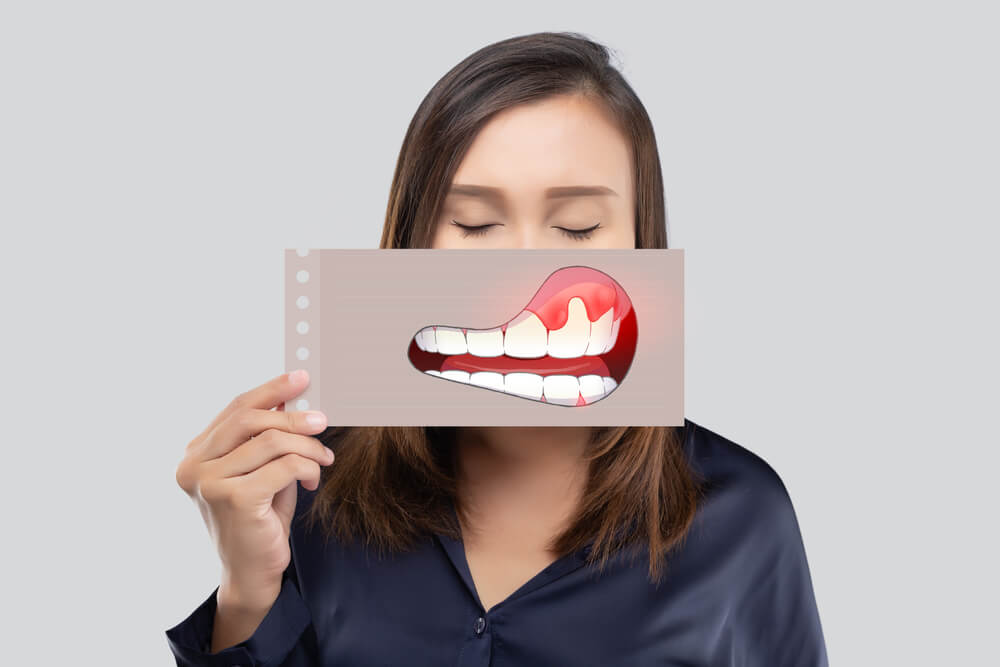 Bacterial infections frequently occur in neglected gums, causing gingivitis (gum inflammation, characterized by gum pain, irritation, and bleeding). Periodontitis is the advanced form of gum disease, and it’s the top reason behind adult teeth falling out. Periodontitis can become quite aggressive when left unchecked, causing gums to recede. It can also occur in young people due to vitamin insufficiency.
Bacterial infections frequently occur in neglected gums, causing gingivitis (gum inflammation, characterized by gum pain, irritation, and bleeding). Periodontitis is the advanced form of gum disease, and it’s the top reason behind adult teeth falling out. Periodontitis can become quite aggressive when left unchecked, causing gums to recede. It can also occur in young people due to vitamin insufficiency.
Even worse, advanced gum disease is also a systemic inflammatory disease linked to diabetes, lupus, cardiac disease, and autoimmune disorders. So keeping your whole mouth healthy can keep your whole body healthy.
How to Brush Like a Champ: Including Your Gums!
First things first: Did you know that brushing incorrectly can damage (or neglect) your gums, leading to all kinds of painful issues? When you brush, be sure to hold your toothbrush at a 45-degree angle at the gum line and brush quickly on every surface. That means the inside of the teeth as well as the obvious outside area and chewing surfaces.
Although you may feel “sweaters” on the outside of your teeth, prompting you to brush, the inside surface area
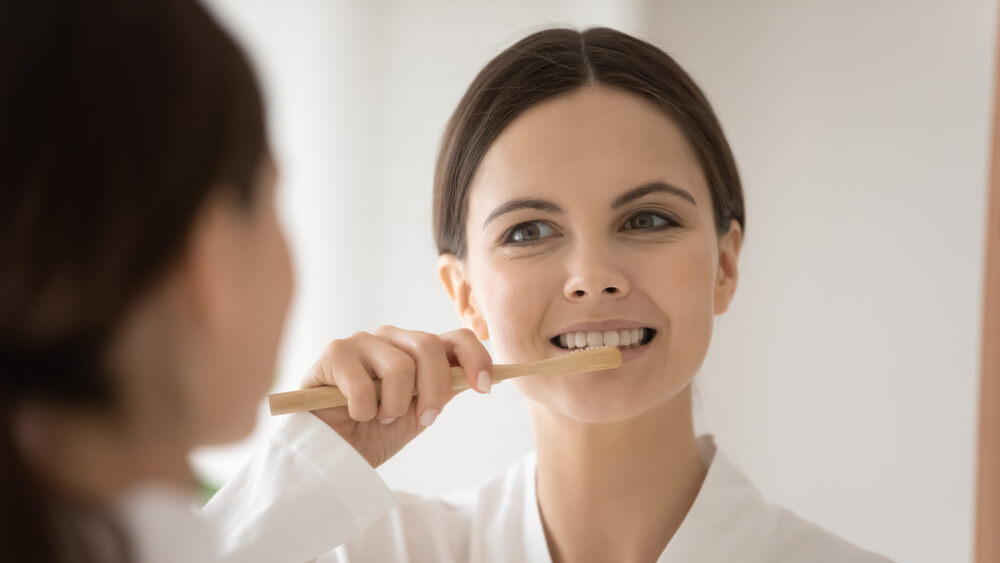
of your teeth also collects bacteria and sugary residue that your tongue might not notice. Trust us, the insides of teeth are often overlooked when brushing, and decay can easily occur there, sometimes below the gum line, wreaking all kinds of havoc.
How long to brush? Well, most adults and kids aren’t brushing long enough. Two minutes twice a day at minimum is the recommended approach. Also, try not to brush too vigorously — this is a common cause of gum irritation.
Toothpaste Tutorial
Here at Dr. Lance Johnson Family Dentistry, we are often asked about the “best” toothpaste to use. Fortunately, there are plenty of “best” options available at your local supermarket or pharmacy. We recommend any brand with fluoride, enamel protection, tartar-fighting superpowers, and proven safe, effective ingredients. So how do you know toothpaste is safe? Easy: The toothpaste will have a Seal of Acceptance on the packaging from the American Dental Association (ADA).
If you find several toothpaste brands that check all those boxes first, then you can look for ones that have other attributes, like whitening or sensitive teeth formulas.
Word to the wise: Check ingredients on so-called “natural” toothpaste. Often they’re formulated with harsh abrasives (check for gritty ingredients) that can damage teeth. Another thing to watch out for is that sodium lauryl sulfate, an ingredient in some toothpaste, can irritate (or create) canker sores if you tend to get them.
Floss Facts
 Hey, we know it’s hard to remember to floss when you’re tired or in a hurry. But flossing is a necessary weapon in the fight against bacteria and food residue.
Hey, we know it’s hard to remember to floss when you’re tired or in a hurry. But flossing is a necessary weapon in the fight against bacteria and food residue.
There’s no way to skip it and avoid a tough, nasty buildup of bacteria that won’t budge — say hello to plaque! Plaque is a real villain when it comes to oral health. If you want to keep gum disease at bay, banish bacteria before plaque gets a chance to form.
We tell our patients that flossing should be a daily habit — whenever is easiest for you! So if you’re a morning person, by all means, floss after breakfast. If you’re a night owl, flossing at bedtime is just fine too. If you hate winding floss around your fingers, you can also buy disposable flossing picks. They’re not quite as good at banishing bacteria as regular floss, but in a pinch, a flossing pick is better than nothing.
Mouthwash Matters to Gum Health
You may not realize it, but there are two kinds of mouthwash: cosmetic and therapeutic. Cosmetic mouthwashes or rinses are a temporary fix that just covers up bad breath or halitosis. Therapeutic mouthwashes, like Listerine, contain bracing, active ingredients that are proven to kill nasty-breath-causing germs, slay tooth decay, and keep away gingivitis (gum disease).
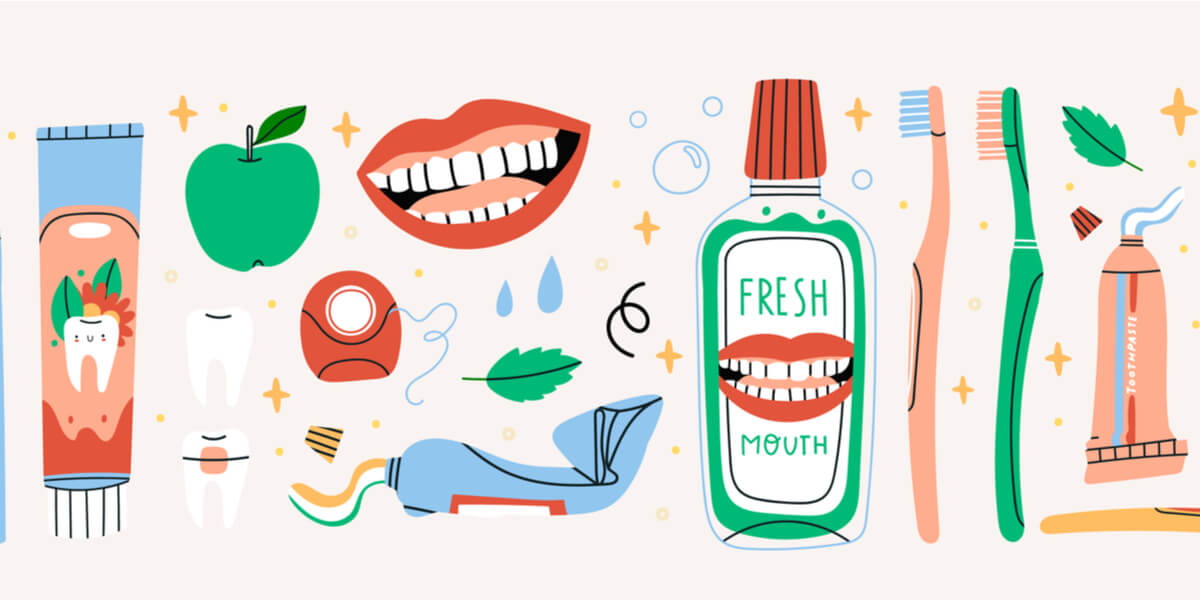
Once you know what to look for, though, it’s not hard finding the mouthwash you want. Common ingredients are cetylpyridinium chloride to crush bad breath, essential oils or prescription-only chlorhexidine to control plaque and treat gingivitis, fluoride to prevent tooth decay, and hydrogen peroxide to whiten teeth and lessen stains from coffee, cigarettes, or red wine.
Ditch the Cigarettes
Your teeth, breath, lungs, and heart aren’t the only ones who will thank you if you kick the habit of smoking. Would you believe that the Centers for Disease Control and Prevention (CDC) have named smoking a main cause of significant gum disease and degradation? Not to mention smoking harms your body’s immune system, meaning if your gums are compromised or infected, it’s going to be very hard for them to heal. So get this: If you use any kind of tobacco whatsoever, your risk for gum disease doubles and only increases the more tobacco you consume and the longer you smoke or chew the stuff.
Diet Don’ts for Gum Care
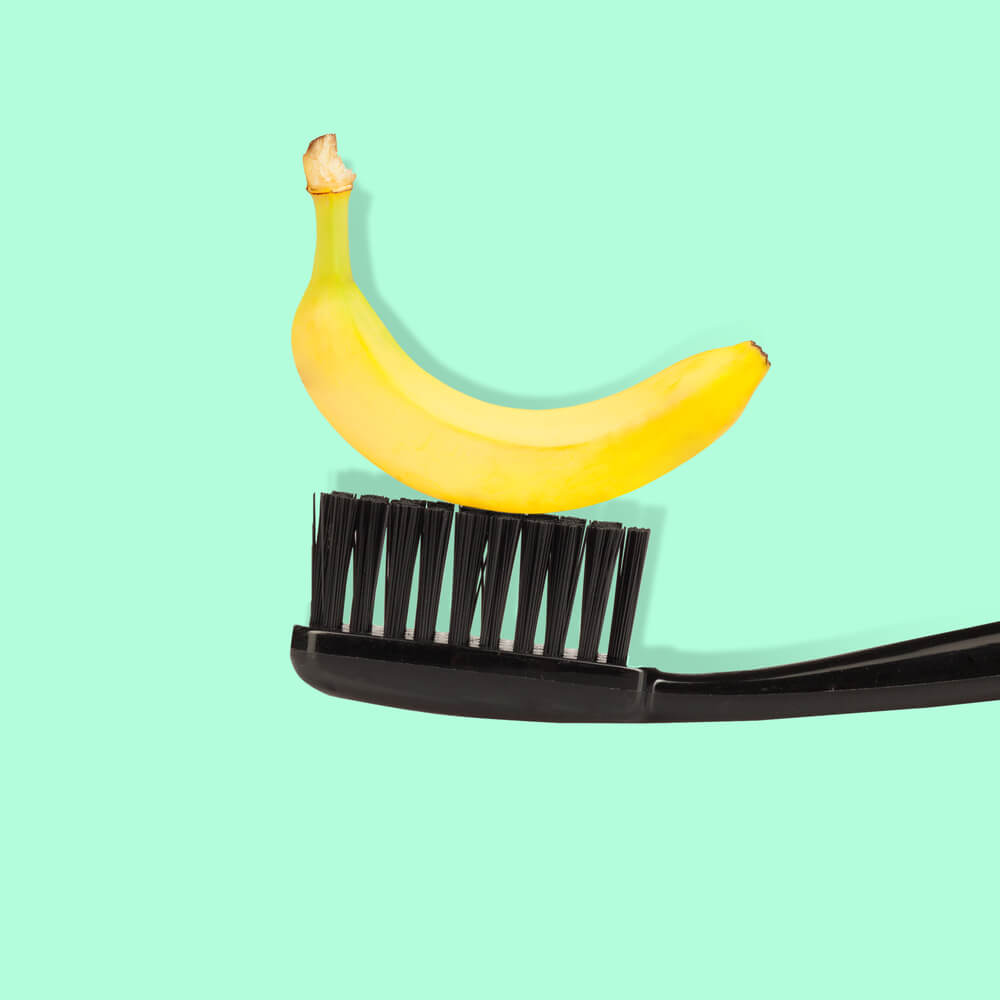 We know people are attached to their favorite drinks and snacks, but the truth is, most folks could use a menu overhaul when it comes to oral health. The bad guys: soda, alcohol, candy, and starches. They’re rough on tooth enamel and can cause decay — yuck! Whenever possible, munch on high-fiber foods like fruit and veggies, which work to clean your mouth of bad bacteria.
We know people are attached to their favorite drinks and snacks, but the truth is, most folks could use a menu overhaul when it comes to oral health. The bad guys: soda, alcohol, candy, and starches. They’re rough on tooth enamel and can cause decay — yuck! Whenever possible, munch on high-fiber foods like fruit and veggies, which work to clean your mouth of bad bacteria.
Good guys include green and black tea, which decreases bacteria in teeth and gums. Of course, tea also tends to stain teeth, so you might want to rinse your mouth out afterward! Sugar-free gum is also okay unless your teeth are sporting braces or appliances. Sugar-free gum works by stimulating the flow of saliva, rinsing away bad bacteria. It’s a great middle step after a sugary dessert if you won’t be able to brush your teeth for a few hours.
Low-fat dairy products are also good for you, with their impressive calcium content and intriguing ability to stop acids from doing damage to teeth and gums.
Would you believe some food contains fluoride naturally? It’s true: some poultry and seafood contain fluoride, your teeth’s best friend. Learn something new every day, eh?
Uh-Oh: Signs of Gum Disease
Be sure to keep an eye on your gums in between dentist visits. Gingivitis, the first, early stage of gum disease, is so subtle, it’s hard to miss it. Look out for:
subtle, it’s hard to miss it. Look out for:
- Swollen gums
- Red gums
- Chronic bad breath
- Gums that seem to be receding or pulling back from the tooth
- Gums prone to bleeding when you brush or floss
If you notice any of these symptoms, give us a call right away. Gum disease can progress quickly and create pockets of pus and infection at the gum line. When that happens, your teeth can loosen and shift in their sockets — a very scary thing. By taking just a few minutes a week to pay attention to your gums, you should be able to keep your gums (and your teeth!) in tiptop shape.
Swing By During Gum Care Month
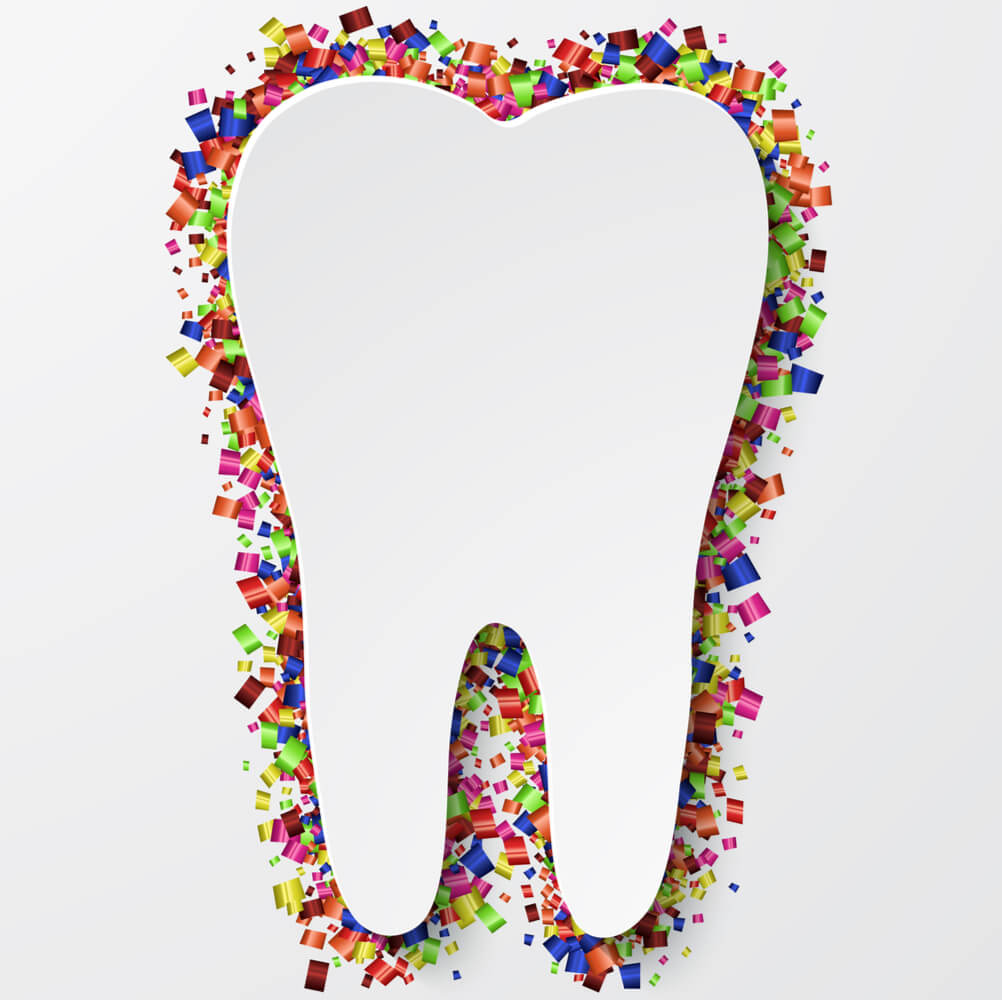 Your dentist is your No. 1 ally when it comes to preventing and treating gum disease, so make sure you schedule maintenance checkups every six months. Professional cleanings are the only way to combat thick plaque and tartar (and yes, we do scrape teeth with metal objects — don’t try that at home!). Our dental tools are specially designed to take on the worst plaque and tartar stains. We even use ultrasonic devices to deal with the most stubborn buildup — and it won’t hurt, we promise.
Your dentist is your No. 1 ally when it comes to preventing and treating gum disease, so make sure you schedule maintenance checkups every six months. Professional cleanings are the only way to combat thick plaque and tartar (and yes, we do scrape teeth with metal objects — don’t try that at home!). Our dental tools are specially designed to take on the worst plaque and tartar stains. We even use ultrasonic devices to deal with the most stubborn buildup — and it won’t hurt, we promise.
Those six-month checkups allow your friendly neighborhood dentist (hopefully us!) to spot gum disease, even in its earliest incarnation (gingivitis). That means it’s possible to undo the damage and keep your gums and teeth safe from developing periodontal disease.
And if you’ve been neglecting your gums, National Gum Care Month is the perfect time to get back on track with smart oral health habits. Dr. Lance Johnson and his team are happy to get your gums glowing — just give us a call!
